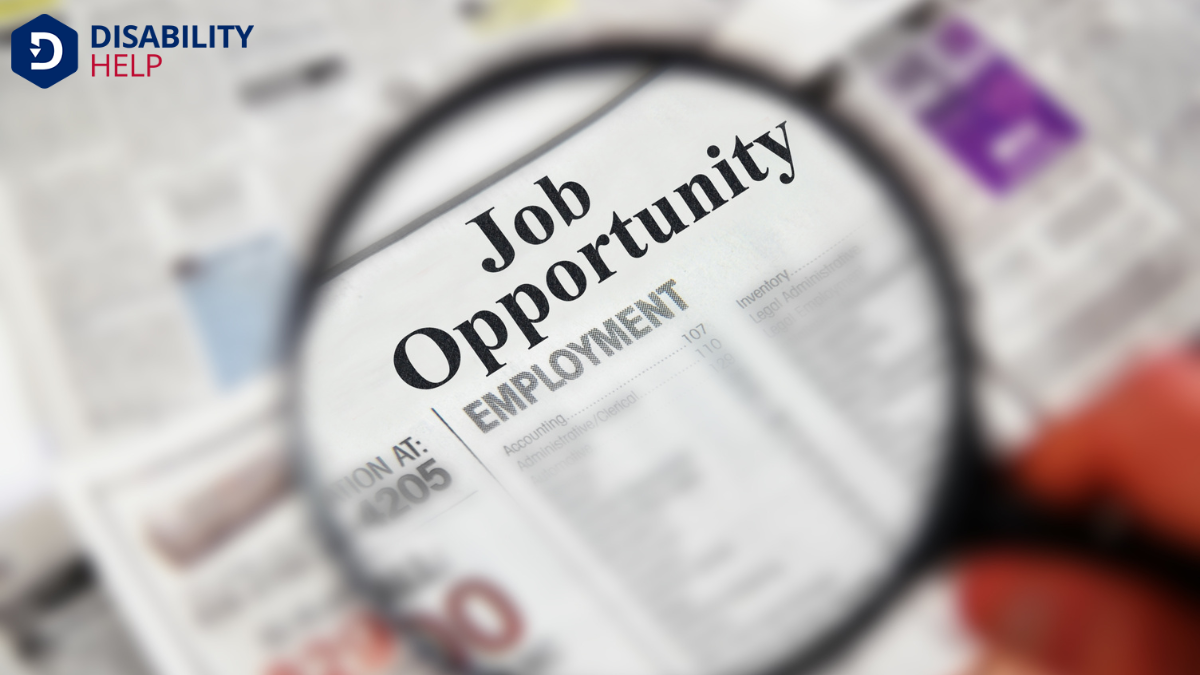If we change jobs while on short-term disability, it could affect our disability benefitsFinancial assistance provided to individuals who are unable to work due to a disability, such as Soc... and income stability. To navigate this, let's evaluate our current benefits, communicate with Human Resources, and explore legal protections like FMLA and ADA. As we look for new opportunities, we'll need to plan interviews carefully and coordinate the shift to guarantee coverage and financial stability. Ultimately, understanding the impact on benefits and financial planning will help us make informed decisions. Find out how to move smoothly.
Key Takeaways
- Inform your current HR about job change intentions to finalize disability benefits and avoid disruptions.
- Review both current and new job short-term disability policies to understand coverage differences.
- Coordinate interviews and transitions with medical needs, balancing recovery and job requirements.
- Know your rights under the FMLA and ADA for job protection and accommodationsModifications or adjustments in healthcare settings to support patients with disabilities. during the transition.
- Assess financial stability, maintaining an emergency fund to handle potential gaps in income.
Understanding Short-Term Disability Benefits
Short-term disability benefits can be a lifeline when we're unable to work due to a temporary medical condition. These benefits provide financial support, helping us cover essential expenses like rent, utilities, and groceries while we recover.
Typically, they replace a percentage of our income, usually between 50% to 70%. To qualify, we must have a medical condition that prevents us from performing our job duties for a short period, often up to six months.
It's important to understand the terms of our coverage since policies vary. We should review the benefits provided by our employer or private insurance, noting any waiting periods or required documentation.
Knowing these details helps us navigate times when we're unable to work, giving us peace of mind during recovery.
Evaluating Your Current Situation

Before making any decisions about changing jobs while on short-term disability, we need to carefully assess our current situation.
Let's consider the stability of our current income and how it aligns with our needs. Are our medical expenses fully covered?
Evaluating the scope of our disability benefits, including their duration and limitations, is essential. We should review any ongoing medical treatments and how a job change might affect them.
It’s also important to reflect on our physical and emotional readiness to shift to a new role. Understanding the potential risks and benefits will guide us in making an informed decision.
Communicating With Your Current Employer
When we're planning to change jobs while on short-term disability, we need to notify Human Resources promptly to guarantee a smooth shift.
It's essential to finalize our disability benefits with them to avoid any disruptions.
Let's also focus on moving our responsibilities smoothly to maintain professionalism and goodwill.
Notifying Human Resources
As we navigate the complexities of changing jobs while on short-term disability, it’s essential to communicate clearly with our current employer’s Human Resources department. Notifying HR guarantees they’re aware of our intentions, allowing for a smooth shift.
We should inform them about our decision to change jobs, providing relevant details like the intended last working day. Clear communication helps minimize misunderstandings and maintains a professional relationship.
Let’s schedule a meeting or call with an HR representative to discuss our situation. It’s important to ask about any required paperwork or procedures related to our short-term disability status.
Finalizing Disability Benefits
To finalize our disability benefits while shifting to a new job, we need to effectively communicate with our current employer. It's essential that we handle this with care to guarantee we receive the benefits we're entitled to.
First, let’s confirm we’re clear on the terms of our benefits and any obligations we've before leaving.
- Confirm Benefit Status: Verify what portion of benefits remains and whether there's a need to repay any advances.
- Document Everything: Keep a detailed record of all communications. This includes emails and notes from meetings discussing our benefits.
- Seek Written Confirmation: Request written confirmation of the final status of our disability benefits from HR or the benefits administrator.
Transitioning Responsibilities Smoothly
Having finalized our disability benefits, the next step involves effectively managing our departure from our current role.
We need to communicate clearly with our current employer to guarantee a smooth changeover. It’s important to have an open discussion about our decision to leave while respecting the terms of our short-term disability. By being upfront, we can help our employer plan for our absence and make certain they've all necessary information to cover our responsibilities.
We should also offer to assist with any knowledge transfer or documentation that might be required. This proactive approach demonstrates professionalism and can help maintain a positive relationship.
Let’s remember, clear communication and cooperation are key to leaving on good terms and protecting our reputation in our industry.
Legal Considerations and Protections
Traversing the legal landscape when changing jobs while on short-term disability can be challenging, but understanding your rights is vital.
We must guarantee that our shift is smooth and compliant with the law. Let's consider some key legal protections available to us:
- Family and Medical Leave Act (FMLA)A U.S. law that provides eligible employees with unpaid, job-protected leave for family and medical ...: If we're eligible, this federal law may protect our job and benefits for up to 12 weeks, but it doesn’t guarantee paid leave.
- Americans with Disabilities Act (ADA)A U.S. law that prohibits discrimination against individuals with disabilities in all areas of publi...: Employers must provide reasonable accommodations and can't discriminate based on disability.
- State Laws: Some states offer additional protections or benefits beyond federal laws, so it’s important to check local regulations.
Exploring Job Opportunities

While considering a job change during short-term disability, it’s essential to explore opportunities that align with both our career goals and current health needs.
We need to evaluate if potential employers offer flexible work arrangementsWork schedules that allow employees with disabilities to manage their health and job responsibilitie... or accommodations that support our recovery. Remote work or part-time options might be beneficial, allowing us to manage our health while pursuing new roles.
Let’s focus on industries and companies known for their supportive work environments. Researching employee reviews or reaching out to current employees can provide insights into a company's culture and values.
Additionally, updating our resumes to highlight skills that remain strong despite our health challenges can enhance our job search. Prioritizing roles that match our physical capabilities guarantees a smoother shift when we're ready to return to work.
Interviewing While on Disability
When we're on short-term disability and considering a job change, scheduling interviews can feel tricky.
We need to decide if and when to disclose our disability status while ensuring we balance our recovery with interview preparation.
Let's explore how to manage these aspects effectively without compromising our health or opportunities.
Navigating Interview Schedules
Interviewing while on short-term disability can be a delicate balancing act, but it's entirely possible with some strategic planning.
We need to guarantee that our interview commitments don't compromise our recovery. It's essential to:
- Schedule Flexibility: Choose times that align with our treatment or recovery schedule. Early mornings or late afternoons might work best.
- Virtual Meetings: Opt for virtual interviews if possible. This reduces travel stress and allows us to remain in a comfortable environment.
- Prioritize Rest: Balance interview prep with ample rest. Fatigue can affect performance, so let's guarantee we're well-rested.
Disclosing Disability Status
Balancing interview schedules while on short-term disability requires careful planning, and part of this process involves deciding how to handle disclosing our disability status.
We must think about whether our disability affects our ability to perform essential job functions or if it requires specific accommodations. It's vital to know that we aren't legally obligated to disclose our disability unless we need accommodations during the interview or in the job itself.
However, if the topic arises, honesty can build trust with potential employers. Sharing only what’s necessary helps maintain privacy while ensuring we’re prepared for any required adjustments.
Let's focus on demonstrating our skills and potential, emphasizing what we bring to the table, rather than letting our disability define us.
Balancing Recovery and Preparation
Even as we focus on our recovery, preparing for job interviews while on short-term disability requires a strategic approach.
It's important to balance healing with readiness to seize new opportunities. Here's how we can do this effectively:
- Schedule Wisely: Plan interviews around medical appointments and rest periods to guarantee we're at our best.
- Communicate Clearly: Be upfront about our current situation, explaining any potential scheduling conflicts or limitations.
- Prioritize Health: Choose opportunities that align with our recovery needs and won't hinder our progress.
We must remember that our health comes first.
By managing our time and expectations, we can present ourselves confidently in interviews while still honoring our recovery journey.
Let's keep focused, prepare thoroughly, and embrace opportunities that support our well-being.
Negotiating With Potential Employers
Although changing jobs while on short-term disability can be intimidating, negotiating with potential employers is a crucial step in ensuring a smooth shift.
We need to be clear about our current situation, including our recovery timeline and any limitations. It's important to address how our disability might impact our potential role, allowing employers to understand our needs and make necessary accommodations.
We should focus on our skills and experiences that add value to the organization, emphasizing our readiness to transition once fully recovered.
Let’s not shy away from discussing benefits that support our recovery, like flexible work arrangements or remote work options.
Transitioning to a New Job

As we navigate the process of negotiating with potential employers, our focus naturally shifts toward starting a new job.
Shifting to a new role while on short-term disability requires us to be organized and proactive. It’s essential to guarantee that our unique needs and circumstances are addressed.
Here are some key steps to help ease the shift:
- Communicate with HR: Let the new employer’s HR department know about our disability status to guarantee accommodations are in place.
- Review Benefits: Compare the new company’s benefits package to understand any differences in disability coverage.
- Plan the Shift: Coordinate the start date and inform current providers about the change to prevent gaps in care.
These steps can help us smoothly shift into our new role while maintaining necessary support.
Maintaining Financial Stability During the Transition
Changing to a new job while on short-term disability can be financially challenging, but with careful planning, we can maintain stability.
First, let's review our current financial situation. We should assess our income sources, including disability benefits, and list all essential expenses. It's vital to create a budget and stick to it, minimizing non-essential spending.
Next, we need to understand how the changeover might affect our benefits. Will our new employer offer short-term disability insuranceInsurance that provides income replacement for a limited time when an employee is unable to work due... or other support? Communication is key; let's ask detailed questions about benefits during the hiring process.
Additionally, having an emergency fund can provide a financial cushion. Even small contributions add up over time, offering peace of mind.
Conclusion
In maneuvering job changes while on short-term disability, we must weigh our options carefully. Let's communicate openly with our current employer and understand our legal protections. Exploring new opportunities requires thoughtful interviewing and negotiation strategies. As we shift to a new job, maintaining financial stability is essential. By staying informed and proactive, we can make this shift smoother and continue to prioritize our health and well-being. Together, we'll turn this challenge into an opportunity for growth.






